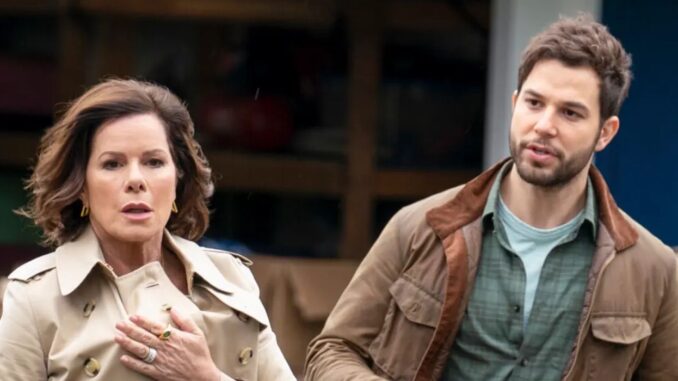
The Curious Case of Cancellations and Callback Cameras: Did CBS Find Matlock Gold?
The television landscape is a brutal battlefield. Shows claw and scratch for ratings, vying for the fleeting attention of a perpetually distracted audience. In this arena, CBS made a bold move, a calculated gamble that sparked debate and initially left many scratching their heads: canceling the established procedural dramas NCIS: Hawai'i and So Help Me Todd to make room for a reboot of Matlock, starring Kathy Bates. While the sting of cancellation is undeniable for fans of the departed shows, early indicators suggest CBS might just be laughing all the way to the bank, proving that sometimes, the old ways are the best ways.
The initial outcry was predictable. NCIS: Hawai'i boasted beautiful scenery, a diverse cast, and a dedicated following. So Help Me Todd, with its quirky premise and strong performances, offered a lighter, more comedic alternative to the typical crime procedural. Why sacrifice these relatively successful shows, particularly when CBS seemed to be doubling down on the very genre they represented? The answer, it seems, lies in a deeper understanding of CBS’s core audience and the enduring appeal of nostalgia.
CBS has long cultivated a reputation as the network for comfort television, a safe haven of familiar faces, predictable plotlines, and a general sense of warmth. While NCIS: Hawai'i and So Help Me Todd had their merits, they arguably lacked the specific demographic appeal that Matlock so readily provides: older viewers craving a return to simpler television.
The original Matlock, starring Andy Griffith, was a ratings juggernaut, offering a comforting blend of legal drama and folksy charm. The new iteration, with Kathy Bates at the helm, aims to recapture that magic, offering a modern take on the classic character while retaining the core elements that made the original so beloved. It's a strategic move, a callback to a proven formula designed to attract and retain the network's bread-and-butter audience.
The "paying off" aspect of CBS's gamble isn't just about raw numbers. While the initial ratings for Matlock might not have instantly catapulted it to the top of the charts, early signs are encouraging. The show has consistently held its own in its time slot, drawing a substantial viewership, particularly within the coveted 50+ demographic. But the success goes beyond mere viewership.
Consider the cultural conversation Matlock has generated. The reboot has sparked a wave of nostalgia, reminding viewers of the simpler joys of classic television. This, in turn, translates to positive word-of-mouth, critical acclaim (particularly for Bates’s performance), and a renewed sense of purpose for CBS. It's a branding exercise, a reaffirmation of the network's commitment to providing quality entertainment for its core audience.
Furthermore, the move highlights the evolving landscape of television consumption. While streaming services offer a plethora of options, broadcast networks still hold significant sway, particularly with older demographics less inclined to navigate the complexities of on-demand viewing. Matlock offers a familiar and accessible experience, a comforting respite from the often-overwhelming choices available on streaming platforms.
However, the cancellation of NCIS: Hawai'i and So Help Me Todd serves as a cautionary tale. It's a reminder that television is a business, and sometimes, even good shows fall victim to strategic decisions driven by demographics and market trends. The pain felt by fans of these shows is real, and the value of diverse representation and innovative storytelling should not be underestimated.
In conclusion, the decision to cancel NCIS: Hawai'i and So Help Me Todd to make room for Matlock initially appeared to be a risky, perhaps even controversial, move. However, based on initial indicators, it seems to be paying off for CBS. The Matlock reboot has tapped into a powerful vein of nostalgia, attracting a loyal viewership and solidifying CBS’s position as the network for comfort television. While the impact on the canceled shows and their fans cannot be ignored, the success of Matlock demonstrates the enduring appeal of familiar formulas, strategic audience targeting, and the power of a well-executed reboot. The television battlefield remains unforgiving, but in this particular skirmish, CBS seems to have unearthed a bit of Matlock gold.
